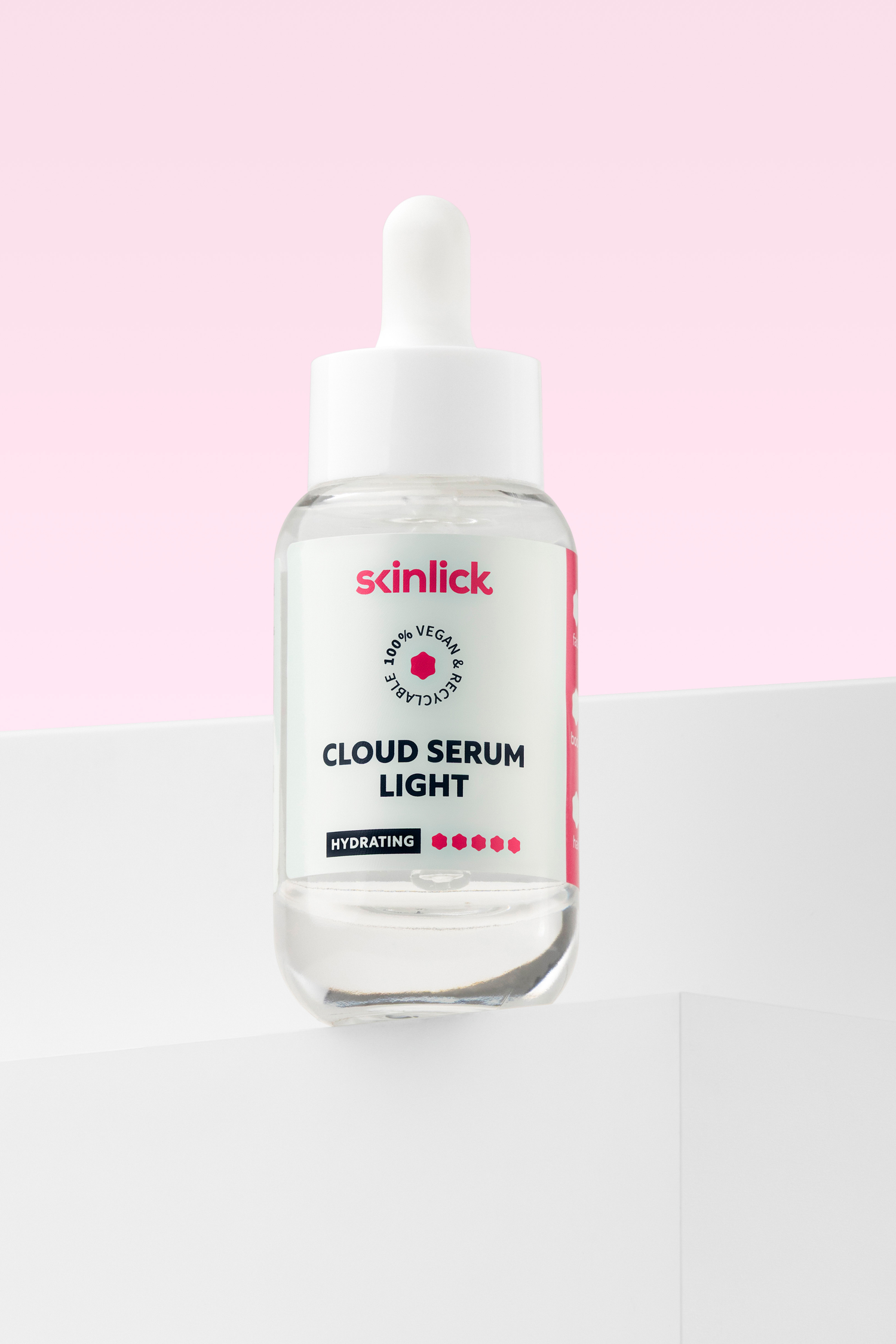WHAT WILL MOISTURIZING SERUM DO FOR US?
One of the indispensable steps of every routine is a moisturizing serum. Regardless of your skin type or specific skin concerns, a hydrating serum is your secret weapon to achieving hydrated, healthy and glowing skin.
Moisturizing serums are usually formulated with a high concentration of active ingredients that provide deep hydration to the skin, and are products that are extremely light in texture and quickly absorbed, making them suitable for use under creams or oils as an additional step of hydration.

Skinlick Cloud Serum Light is an ideal moisturizing serum for normal to oily skin prone to clogged pores and irregularities. It is ideal for everyday use, especially in summer because of its light and watery texture.
This serum contains ingredients such as rice extract solution, hyaluronic acid and panthenol, which will deeply hydrate your skin and restore its firmness and freshness.
Also, the serum contains probiotic ferments that strengthen and protect the skin's protective barrier, providing additional care.
One of the key reasons why we need this serum is that it helps restore and maintain optimal skin hydration. Our skin is exposed to various external factors, such as weather conditions, pollution and dry air, which can lead to dehydration.
In addition, moisturizing serums can also have an anti-aging effect on our skin. With age, the skin loses its natural moisture and elasticity, which leads to the appearance of fine lines and wrinkles.

Cloud Serum Light fits perfectly into a layered facial routine, whether you use it under a cream or an oil. You can apply it as a moisturizing base before other skin care products, and it is also suitable for sensitive skin.
Cloud Serum Light has been clinically tested to ensure its safety and effectiveness on every skin type.
In addition, the packaging of this serum is fully recyclable, like all other Skinlick packaging.



